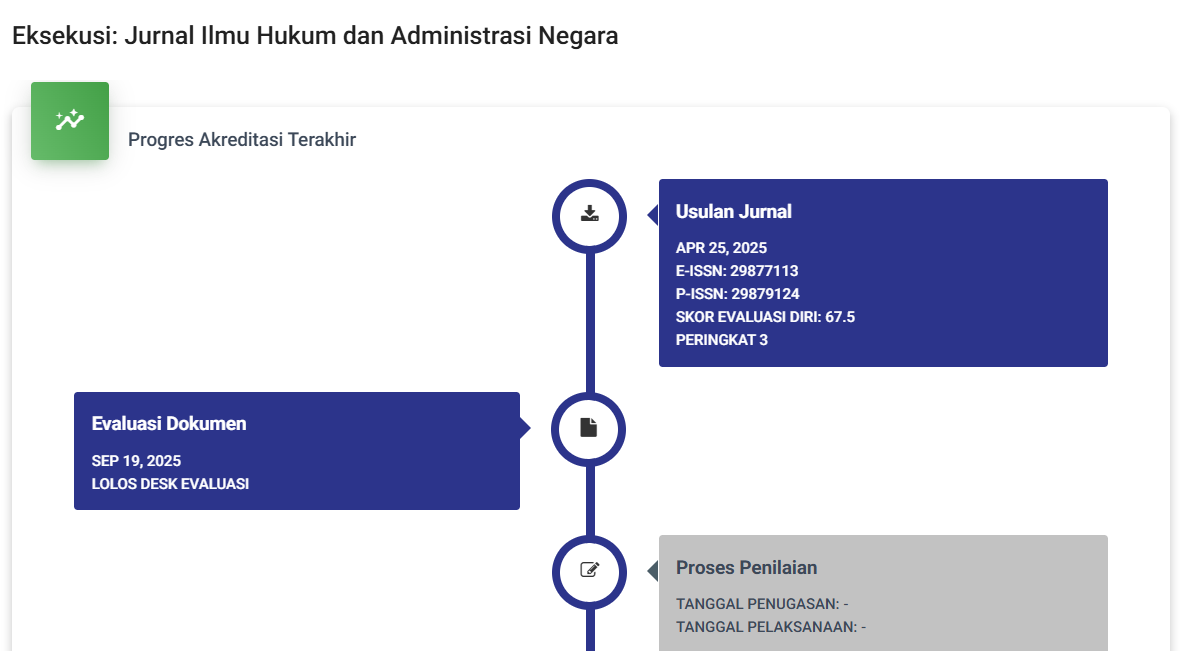Kohabitasi (Kumpul Kebo) dalam Perspektif Hadits Riwayat Bukhari dan Muslim serta Pasal 411 dan Pasal 412 KUHP
DOI:
https://doi.org/10.55606/eksekusi.v3i2.1868Keywords:
Adultery, Article 411 and 412 of the Criminal Code, Cohabitation, Gathering Together, Hadith of Bukhari and Muslim.Abstract
This study aims to discuss the phenomenon of cohabitation (kumpul kebo) in the perspective of the Hadith Narrated by Bukhari and Muslim and its relevance in articles 411 and 412 of the Criminal Code. This study uses a descriptive analysis method with a normative legal approach through laws and regulations and the Hadith Book of Sahih al-Bukhari, and literature related to the research topic. The data collection technique uses a literature study with its analysis technique using qualitative data analysis, to understand the moral implications of adultery and to understand the sanctions for adultery in the context of cohabitation. This study also provides an understanding and education about the negative impacts of relationships without a legal marriage. The research findings show that cohabitation is considered a form of adultery that is detrimental to both parties, both from a religious and legal perspective. This study concludes by emphasizing the importance of a legal marriage relationship according to religion and the state and staying away from adultery.
References
Ahmad Behiej. (2008). Hukum pidana. Yogyakarta: Teras.
Al-Bukhari, M. I. I. (n.d.). Sahih al-Bukhari. Retrieved from https://sunnah.com/bukhari
Arifin, T. (2014). Ulumul Hadits. Bandung: Sunan Gunung Djati Press.
Arifin, T. (2016). Antropologi hukum Islam. Bandung: Pusat Penelitian dan Penerbitan UIN Sunan Gunung Djati.
Azizah, A. (2022). Kohabitasi dalam perspektif agama dan hukum: Pandangan Islam dan hukum pidana Indonesia. Jurnal Hukum dan Masyarakat, 10(3).
Federspiel, H. M., Arifin, T., & Hidayat, R. T. (1996). Kajian Al-Qur’an di Indonesia: Dari Mahmud Yunus hingga Quraish Shihab. Bandung: Mizan.
Hadi, M. (2021). Hukum pidana Indonesia: Perspektif terhadap kohabitasi. Jurnal Hukum Pidana, 18(2).
Kementerian Agama Republik Indonesia. (2019). Al-Qur’an dan terjemahannya. Retrieved from https://quran.kemenag.go.id/
Kotler, P., & Lee, N. R. (2009). Up and out of poverty: The social marketing solution. New Jersey: Pearson Education, Inc.
KUHP Digital. (n.d.). KUHP Digital [Mobile application]. Retrieved from https://play.google.com/store/apps/details?id=com.kuhpidigital
Kurniawan, W., Sudarmanto, K., & Sukarna. (2022). Kohabitasi dalam KUHP 2023 ternyata tidak (perlu) dipidana. Journal Juridisch, 2(3).
Lubis, M., Arifin, T., Ridwan, A. H., & Zulbaidah. (2025). Reorientation of sharia stock regulations: Integrating taṣarrufāt al-Rasūl and maqāṣid al-sharī‘ah for justice and sustainability. Journal of Information Systems Engineering and Management, 10(10s), 57–66. https://www.jisem-journal.com/index.php/journal/article/view/1341/511
Muslim, I. H. (n.d.). Sahih Muslim. Retrieved from https://sunnah.com/muslim
Nurhayati. (2022). [Review of Islamic legal issues]. Al-Istinbath: Jurnal Hukum Islam, 7(2).
Qobili, M. Z. (n.d.). Jarimah zina sebagai alternatif pencegahan perzinaan di Indonesia dalam perspektif maqasid Jasser Auda (Undergraduate thesis, Universitas Islam Indonesia, Yogyakarta).
Safitri, N. I., & Wahyudi. (2022). Kriminalisasi perbuatan kohabitasi dalam perspektif pembaharuan Kitab Undang-Undang Hukum Pidana (KUHP) di Indonesia. Jurnal Ilmiah Wahana Pendidikan, 8(2).
Setyawan, D. (2024). Kriminalisasi kohabitasi: Telaah dari aspek kesusilaan, adat, agama, moral, kriminologi, dan psikologi. Jurnal Hukum Pidana dan Penanggulangan Kejahatan, 13(3).
Siregar, Z. (2020). Tindak pidana perzinaan dalam perspektif hukum pidana dan hukum Islam. Jurnal Hukum & Pembangunan, 48(2).
Slamet, M. (2020). Konsep halal dan haram dalam Islam dan penerapannya pada zina dan kohabitasi. Jurnal Studi Islam dan Masyarakat, 9(3).
Sudirman, A. (2019). Peran pernikahan dalam mencegah perzinaan dalam perspektif hukum Islam. Jurnal Hukum Islam, 11(2).
Wiranto, & Akib. (2022). Pernikahan dalam perspektif Islam sebagai solusi preventif terhadap zina. El-Maqra’, 7(2).
Yusuf, A. (2019). Hadits dan etika pernikahan dalam Islam. Jurnal Agama dan Kehidupan, 15(4).
Downloads
Published
How to Cite
Issue
Section
License
Copyright (c) 2025 Eksekusi : Jurnal Ilmu Hukum dan Administrasi Negara

This work is licensed under a Creative Commons Attribution-ShareAlike 4.0 International License.








